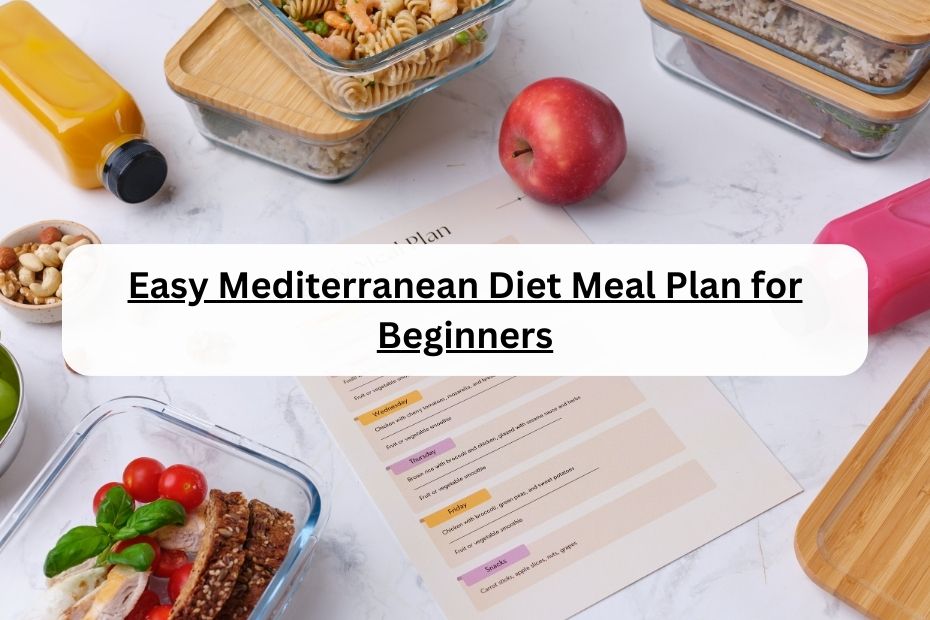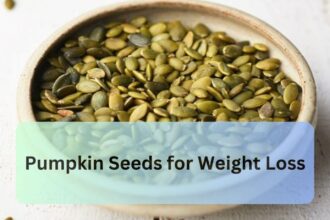Introduction: A Journey to Health and Wellness
The Mediterranean diet stands out as a beacon of balanced nutrition, rich flavours, and sustainable habits in the quest for a healthier lifestyle. Originating from the culinary traditions of countries bordering the Mediterranean Sea, this diet has captured the attention of health-conscious individuals worldwide. In this comprehensive guide, we’ll embark on a delightful culinary journey, exploring the essence of the Mediterranean diet and providing a beginner-friendly meal plan that combines simplicity, taste, and nutrition. So, let’s dive in and discover how you can transform your eating habits while savouring the vibrant tastes of the Mediterranean.
I. Understanding the Mediterranean Diet: More Than Just Food
The Mediterranean Lifestyle:
Explore the holistic approach of the Mediterranean lifestyle. Discuss the importance of physical activity, social connections, and mindful eating, emphasizing the balance between nourishing the body and nurturing the soul.
Key Components of the Mediterranean Diet:
Delve into the core elements of the Mediterranean diet. Highlight the abundance of fruits, vegetables, whole grains, and healthy fats, such as olive oil and nuts. Discuss the moderate intake of dairy, fish, and poultry, with limited consumption of red meat. Explain how this balance provides essential nutrients while promoting heart health and well-being.
II. Crafting Your Mediterranean Meal Plan: A Week of Wholesome Delights
Day 1: Mediterranean Breakfast Bowl:
Provide a colorful breakfast bowl recipe featuring Greek yogurt, fresh berries, nuts, and honey. Discuss the nutritional benefits of each ingredient and how this meal sets a positive tone for the day.
Day 2: Classic Greek Salad and Grilled Chicken:
Share a traditional Greek salad recipe with cucumbers, tomatoes, olives, and feta cheese paired with grilled chicken marinated in olive oil, lemon, and herbs. Discuss the harmony of flavours and the importance of incorporating lean proteins.
Day 3: Pasta Primavera with Roasted Vegetables:
Offer a recipe for whole wheat pasta tossed with roasted Mediterranean vegetables, garlic, and a drizzle of olive oil. Discuss the versatility of pasta dishes in the Mediterranean diet, emphasizing whole grains.
Day 4: Mediterranean Chickpea Salad:
Present a refreshing chickpea salad recipe with bell peppers, red onions, parsley, and a lemon-oregano dressing. Explore the protein-rich nature of chickpeas and their significance in plant-based Mediterranean meals.
Day 5: Baked Fish with Herbs and Citrus:
Provide a recipe for baked fish, such as salmon or sea bass, seasoned with Mediterranean herbs, garlic, and citrus slices. Discuss the omega-3 fatty acids found in fish and their benefits for heart and brain health.
Day 6: Vegetable Ratatouille:
Share a recipe for ratatouille, a flavorful stew of eggplant, zucchini, tomatoes, and bell peppers simmered with aromatic herbs. Discuss the variety of vegetables used and the importance of incorporating various colors into meals.
Day 7: Fresh Fruit Platter with Mint:
Encourage the indulgence in a fresh fruit platter featuring seasonal fruits garnished with mint leaves. Discuss the natural sweetness of fruits as a satisfying and nutritious dessert option.
III. Embracing the Mediterranean Lifestyle: Tips for Success
Smart Snacking and Portion Control:
Offer guidance on healthy snacking options, such as nuts, olives, and fresh fruit. Discuss the importance of portion control in the Mediterranean diet to maintain a balanced caloric intake.
Staying Hydrated with Herbal Teas and Infusions:
Explore the tradition of herbal teas and infusions in Mediterranean culture. Discuss the health benefits of herbal beverages, such as chamomile and mint tea, and their role in hydration and relaxation.
Mindful Dining and Enjoyable Meals:
Highlight the significance of mindful eating in the Mediterranean tradition. Discuss the practice of savouring each bite, appreciating the flavours, and engaging in meaningful conversations during meals. Emphasize the social aspect of dining and its positive impact on mental well-being.
IV. Adapting the Mediterranean Diet to Your Lifestyle: Sustainability and Longevity
Budget-Friendly Mediterranean Meals:
Provide tips on how to embrace the Mediterranean diet on a budget. Discuss affordable ingredients, bulk purchasing of staples, and creative meal-planning techniques to make this dietary approach accessible to everyone.
Eco-Friendly Choices:
Discuss the environmental benefits of the Mediterranean diet. Explore the emphasis on locally sourced, seasonal produce and the reduction of processed foods, leading to a lower carbon footprint. Encourage readers to make sustainable choices in their dietary practices.
Incorporating Mediterranean Traditions:
Celebrate the cultural richness of the Mediterranean diet by incorporating traditions into daily life. Discuss the joy of cooking with family, participating in communal meals, and engaging in outdoor activities. Emphasize the sense of community and belonging that comes with embracing these traditions.
Conclusion: A Flavorful Journey to Wellness
As we conclude our exploration of the easy Mediterranean diet meal plan for beginners, it’s evident that this culinary journey is more than a shift in eating habits; it’s a lifestyle transformation. By savouring the vibrant flavours of fresh produce, wholesome grains, and heart-healthy fats, individuals can embark on a path to improved well-being, longevity, and happiness. The Mediterranean diet offers not just a way of eating but a way of living – one that celebrates health, joy, and the simple pleasures of a delicious meal shared with loved ones. As readers embrace this journey, they step into a world where each bite celebrates the life and each meal is an opportunity to nourish the body and soul.






